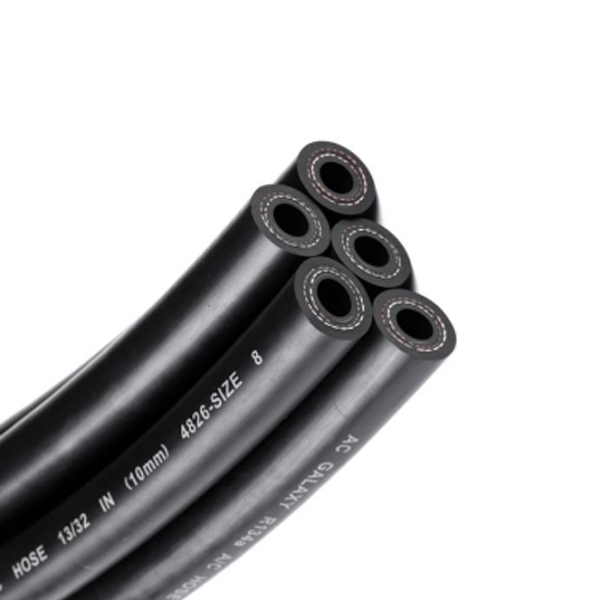fuel transfer hose
Nov . 05, 2024 08:04 Back to list
fuel transfer hose
The Importance of Fuel Transfer Hoses in Modern Industries
Fuel transfer hoses are critical components in various industries, functioning as the lifelines that transport fuels and other liquids safely and efficiently from one location to another. Whether in automotive, aerospace, marine, or industrial applications, these hoses play a pivotal role in ensuring that operations run smoothly while adhering to safety and environmental standards.
What Are Fuel Transfer Hoses?
Fuel transfer hoses are specially designed tubes that are used to convey fuels such as gasoline, diesel, oil, and other liquid substances. Made from materials that can withstand high pressure, temperature fluctuations, and chemical exposure, these hoses come equipped with fittings that connect them to pumps, tanks, or machinery.
These hoses are commonly constructed from rubber, thermoplastic, or composite materials, each offering unique properties suitable for specific applications. For instance, rubber hoses are known for their flexibility and durability, while thermoplastic hoses are more resistant to chemicals and abrasions, making them suitable for harsher environments.
Types of Fuel Transfer Hoses
1. Low-Pressure Hoses Typically used for transferring fuels in lower pressure systems, these hoses are often found in automotive applications where fuel is pumped from the tank to the engine.
2. High-Pressure Hoses Designed to handle higher pressures, these are generally used in industrial settings, such as fuel storage and transfer operations involving large equipment.
3. Biodiesel Transfer Hoses With the increasing popularity of biodiesel as a renewable energy source, specialized hoses designed to transport biodiesel have also emerged. These hoses usually boast enhanced compatibility with the chemical properties of biodiesel.
4. Chemical Resistant Hoses Some hoses are specifically formulated to resist certain chemicals, making them vital in industries where diverse liquid substances are handled, ensuring safety and preventing leaks.
Importance in Safety and Compliance
fuel transfer hose

The importance of fuel transfer hoses extends beyond simple functionality; they play a crucial role in safety and compliance. Fuel spills can lead to catastrophic accidents, environmental damage, and legal issues. Therefore, industries must adhere to strict regulations governing the storage and transport of hazardous materials.
To ensure safety, fuel transfer hoses are subjected to rigorous testing and certification processes to verify their integrity and performance under various conditions
. Regular inspections and maintenance are also essential to detect wear and tear before they lead to failures. Using hoses that meet industry standards minimizes the risk of leaks, spills, and potential health hazards.Applications Across Industries
Fuel transfer hoses find applications in numerous sectors
- Automotive Industry In vehicles, they are used to deliver fuel from the tank to the engine. - Aerospace Aviation fuel transfer hoses are specially designed to operate under extreme pressure and temperature. - Marine In boats and ships, these hoses are critical for transferring fuel and lubricants safely. - Construction and Agriculture Heavy machinery frequently requires fuel transfer hoses for efficient operation in rugged environments.
Innovations and Future Trends
The future of fuel transfer hoses is likely to be shaped by technological advancements and shifts in energy use. For instance, the development of hoses with enhanced durability and lower environmental impact is becoming increasingly important. Moreover, as industries pivot towards sustainable practices, hoses designed to transport alternative fuels, such as ethanol and hydrogen, will gain prominence.
Additionally, smart technologies could be integrated into fuel transfer systems to monitor pressure, flow rates, and even potential leaks in real time. Such innovation would not only enhance safety but also improve the efficiency of fuel management processes.
Conclusion
Fuel transfer hoses are essential components that support the infrastructure of modern industries. Their importance cannot be overstated, as they ensure the safe and efficient transport of fuels, minimize the risk of accidents, and help companies comply with safety regulations. As technology advances and the world moves towards more sustainable energy sources, the evolution of these hoses will undoubtedly continue, solidifying their role in the future of energy management. Investing in high-quality fuel transfer hoses and adhering to maintenance best practices will remain fundamental for industries reliant on fluid transport.
